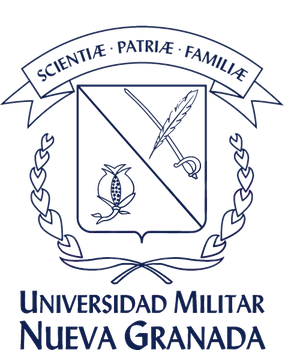The right of specially protected groups to inclusive higher education
Abstract
This article reports on the progress of the research project “Higher Education as a Fundamental Right,” based on the study of specially protected groups in Colombia, which corresponds to the current characterization of education as a fundamental right, since the constitution of 1991. In 1991`s constitution, the pluriethnic and multicultural nature of Colombian nationality is recognized, by citing constitutional principles, the preponderance of human rights and the protection to specific parts of Colombian population. This is why we talk about higher education inclusion, which is a trend based on the rights approach that promotes education for all, regardless the condition or situation of young people or adults. This encourages States to eliminate barriers and forms of discrimination that prevent specially protected groups from accessing higher education. We must recognize that although ours is a plural society, exclusion and discrimination are realities present in education. Inclusion calls to break away from excluding others because of their ethnic background, religion, gender, culture, sexual orientation, etc., by eliminating paradigms that generate inequality, which will allow those groups to access higher education, not only in terms of entering it but also of staying and successfully completing their studies.
Downloads
References
Asamblea Nacional Constituyente. (1991). Constitución política de Colombia. Bogotá: Imprenta Nacional.
Asociación nacional de universidades e instituciones de educación superior. (2009). Manual para la integración de personas con discapacidad en las instituciones de educación superior. México. (1997). The NGLS Handbook . Ginebra y New York.
Cedeño, F. (2002). Hacia la Educación Inclusiva de Calidad. Bogotá: Ministerio de Educación Nacional.
Comenio, J. A. (1905). The Laberynt of the world and the paradise of the heart. (C. Lutzow, Ed., & C.
Lutzow, Trad.) Londres. Corte Constitucional de Colombia. (1993). Sentencia T-373. Santafé de Bogotá, D.C.
Corte Constitucional de Colombia. (2000). T-1677. Bogotá.
Corte Constitucional de Colombia. (2011). Sentencia T-694. Bogotá.
Corte Constitucional de Colombia. Sala Primera de Revisión. (s.f.).
Sentencia T-524. Bogotá.
Courtney, W. (1999). Education and Development Co- Operation: a UNESCO Perspective.
Fernández, A. (2001). La Educación Inclusiva en América Latina y el Caribe. Abriendo Caminos para una Sociedad más justa. AECID.
Helg, A. (1987). La educación en Colombia, 1918-1957: Una historia social, económica y política. Bogotá: CEREC.
Ministerio de Educación Nacional. (2005). Lineamientos de política para la atención educativa a poblaciones vulnerables. Documento No. 2. Bogotá.
Ministerio de Educación Nacional. (2008). Guía de Autoevaluación y Mejoramiento Institucional: Claves para una educación de calidad. Guía 34.
Bogotá. Bogotá.
Ministerio de Educación Nacional. (2012). ¿Qué es la educación superior? Recuperado el 7 de Septiembre de 2012, de http://www.mineducacion.gov.co
UNESCO. (1960). Convención relativa a la lucha contra las discriminaciones en la esfera de la enseñanza.
UNESCO. (1990). Declaración Mundial sobre la Educación para Todos. Jomtién.
UNESCO. (1998). Temario Abierto sobre Educación Inclusiva.
UNESCO. (2001). Conferencia inclusión educación superior. Falta.
UNESCO, I. m. (1998). Informe mundial sobre la educación. París.













